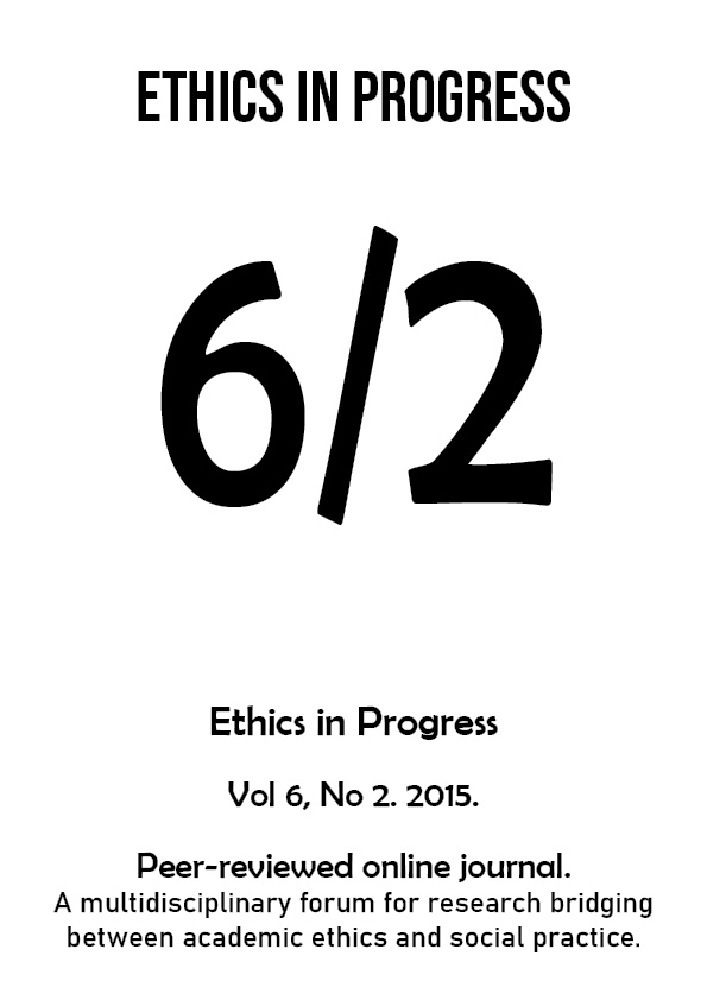Abstract
It is assumed that the university education positively impacts the student’s moral reasoning. The purpose of this research was to examine the Moral judgment competence MJC between systems and management students at a public university in Hidalgo, Mexico. The effectiveness of their curricula and the university years have impact on students’ moral judgment competence.
Data was collected through survey exploration with the Moral Judgment Test completed by 272 administration students and 79 systems students of all semesters. The moral judgment competence was evaluated by C index. The C index score was higher for the management than the systems students. The C index score was slightly lower for senior than freshman students. The scholar years did not improve the senior students’ C index, more years of university career were not associated with the senior students’ C index score. Additionally, the results indicated that moral judgment Competence is the same in any gender of the students. Planned moral judgment competence in university curricula is necessary to improve students’ moral reasoning. In this paper, background, theoretical framework, results are discussed.
References
Alpay, E. 2013. “Student-Inspired Activities for the Teaching and Learning of Engineering Ethics”. Science & Engineering Ethics 19(4): 1455-1468.
Barba, B. 2002. “Influencia de la edad y de la escolaridad en el desarrollo del juicio moral”. REDIE. Revista Electrónica de Investigación Educativa 4(2): 22-45.
Barba, B. & Romo, J. 2005. “Desarrollo del Juicio Moral en la Educación Superior”. Revista Mexicana de Investigación Educativa 10(24): 67-92.
Buell, K. 2009. The Relationship of Ethics Education to the Moral Development of Accounting Students. Fort Lauderdale: Nova Southeastern University.
Cohen, J., Pant, L., & Sharp, D. 2001. “An Examination of Differences in Ethical Decision-Making Between Canadian Business Students and Accounting Professionals”. Journal Of Business Ethics 30(4): 319-336.
Finelli, C., Holsapple, M., Eunjong, R., Bielby, R., Burt, B., Carpenter, D., & Sutkus, J. 2012. “An Assessment of Engineering Students' Curricular and Co-Curricular Experiences and Their Ethical Development.” Journal Of Engineering Education 101(3): 469-494.
Guerrero, M. & Gómez, D. 2013. “Enseñanza de la ética y la educación moral, ¿permanecen ausentes de los programas universitarios?.” Revista Electrónica de Investigación Educativa 15(1): 122-135.
Harding, T., Mayhew, M., Finelli, C., & Carpenter, D. 2007. “The Theory of Planned Behavior As a Model of Academic Dishonesty in Engineering and Humanities Undergraduates.” Ethics & Behavior 17(3): 255-279.
Kohlberg, L. 1964. “Development of Moral Character and Moral Ideology.” In: M. L. Hoffman & L. W. Hoffman (Eds.) Review of Child Development Research. Vol. I. New York: Russel Sage Foundation: 381-431.
Kohlberg, L. 1992. Psicología del desarrollo moral. Trans. A. Zubiaur Zárate. Bilbao: Desclée de Brouwer.
Lind, G. 2004. “The Meaning and Measurement of Moral Judgment Competence Revisited – a Dual-Aspect Model”. In: D. Fasko & W. Willis (Eds.) Contemporary Philosophical and Psychological Perspectives on Moral Development and Education. Cresskill NJ: Hampton Press: 185-220.
Lind, G. 2008. The Moral Judgment Test. Retrieved from http://www.unikonstanz.de/ag-moral/mut/mjt-certification.htm#certified_versions
Mohamed Saat, M., Porter, S., & Woodbine, G. 2012. “A Longitudinal Study of Accounting Students' Ethical Judgment Making Ability”. Accounting Education 21(3): 215-229.
Nwankwo, B. 2013. “Role of Gender, Emotional Empathy, Interpersonal Attraction on Moral Judgment”. IFE Psychologia 21(2): 264-276.
Park, M., Kjervik, D., Crandell, J., & Oermann, M. 2012. “The Relationship of Ethics Education to Moral Sensitivity and Moral Reasoning Skills of Nursing Students.” Nursing Ethics 19(4): 568-580.
Robles, V. 2010. “El papel del rol y el contexto en la competencia del juiciomoral: estudiantes de negocios vs. burócratas”. Revista de la facultad de Ciencias Económicas de la Universidad Militar Nueva Granada 18: 169-177.
Robles, V. 2012. “Complejidad de la moralidad organizacional: una discusión sobre diferentes roles”. Sotavento 20: 106-117.
Thomas, J. & Dunphy, S. 2014. “Factors Affecting Moral Judgment in Business Students.” Journal of the Indiana Academy of the Social Sciences 17: 130-153.
Venezia, C., Venezia, G., Cavico, F., & Mujtaba, B. 2011. "Is Ethics Education Necessary? A Comparative Study of Moral Cognizance in Taiwan and the United States”. International Business & Economics Research Journal 10(3): 17-28.
Wang, L. & Calvano, L. 2015. “Is Business Ethics Education Effective? An Analysis of Gender, Personal Ethical Perspectives, and Moral Judgment.” Journal Of Business Ethics 126(4): 591-602




